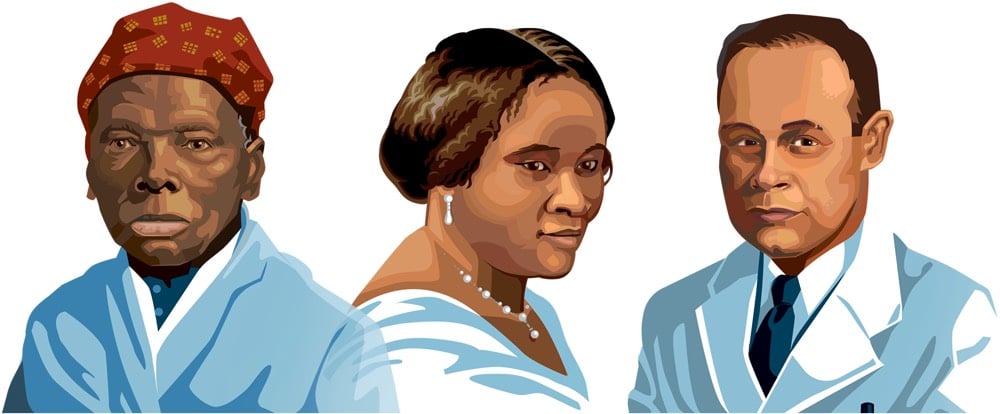The Most Influential Black Americans in History

The Undefeated has complied a list of some of the most influential black Americans — 44 African Americans Who Shook Up the World.
This is a list of The Undefeated 44, a collection of dreamers and doers, noisy geniuses and quiet innovators, record-breakers and symbols of pride and aspiration.
A dashing lawyer who redefined fearlessness and broke Jim Crow’s back. The most gravity-defying, emulated athlete the world has ever produced. A brilliant folklorist of fierce independence who was a proudly “outrageous woman.”
This is not a list of The Greatest African-Americans of All Time or The Most Influential Blacks in History. Or even The Dopest Brothers and Sisters Who Matter Most This Week. It is a list — fervently debated among our staff, chiseled and refined — of 44 blacks who shook up the world or at least their corner of it. We recognize that this is not a complete list of jaw-dropping black achievers; we know that such a list would never run out of names. Why limit ours to 44? It’s an homage to the first African-American president, whose own stunning accomplishment was something our mothers and grandfathers and great-grandmothers never thought they’d see in their lifetimes.
The list includes many household names like Muhammad Ali, Maya Angelou, and Jean-Michel Basquiat but also some lesser-celebrated people like Dr. Charles Drew:
After becoming the first African-American to get his doctorate from Columbia University in 1940, Drew was the world’s leading authority on blood transfusions and storage, just as the United States and Great Britain were becoming deeply involved in World War II. His research established protocols on how blood should be collected and refrigerated, how donors should be recruited and screened, and training methods for people who would collect and test blood.
As medical director of the American Red Cross National Blood Donor Service, Drew led the collection of tens of thousands of pints of blood for U.S. troops. Some historians say his work might have saved the world from Nazism, since battlefield blood storage and transfusions didn’t exist before he was asked to manage two of the largest blood banks during the war.
And Madam C.J. Walker:
As she traveled throughout the United States, the Caribbean and Central America, teaching her Walker System and training sales agents, she shared her personal story: her birth on the same plantation where her parents had been enslaved, her struggles as a young widow, her desperate poverty. If she could transform herself, so could they. In place of washtubs and cotton fields, Walker offered them beauty culture, education, financial freedom and confidence. “You have made it possible for a colored woman to make more money in a day selling your products than she could in a week working in white folks’ kitchens,” one agent wrote to her.





Stay Connected